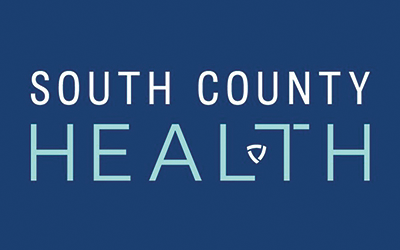State to examine natural gas’s role in reducing greenhouse gas emissions

WARWICK — State utility officials will start the new year with a special resolution: studying how the natural gas distribution system will play a part in reducing greenhouse gas emissions.
The Public Utilities Commission (PUC) has signed off on a three-part work plan that includes a review of current state policy on natural gas, a technical analysis of the system to be performed by Rhode Island Energy, and identifying ways state regulators can help achieve emission reduction goals.
Unlike many PUC dockets, where lawyers and experts spar over proposed policy in highly technical jargon, this one will remain uncontested. In a memorandum outlining the staff’s final recommendations, staff cautioned the docket would remain an information-gathering enterprise, and indicated members of the public expecting radical action would have to wait for a future docket.
The docket is aimed at solving a key tension in state policy: What will the role of fossil fuels play in achieving the mandates of the Act on Climate law?
The legislation, signed into law last year by Gov. Dan McKee, requires state officials to achieve netzero emissions by 2050, with plenty of benchmark goals in between. If the state fails to meet reductions laid out in the law, it could open itself to legal challenges.
But there’s an elephant in the room called natural gas. About half the homes in the state rely on natural gas for heat in the winter, and another third use home heating oil. Residential and commercial heating accounts for 26% of all greenhouse gas (GHG) emissions in RI, according to the latest GHG Emissions Inventory from the Rhode Island Department of Environmental Management.
Homes not relying on fossil fuels for heat still overwhelmingly rely on it for electricity generation; 87% of electricity generated for the state comes from natural gas, with renewables making up the rest, according to the federal Energy Information Administration.
South Kingston pulls plug on controversial hospital land swap
WAKEFIELD — Members of the South Kingstown Town Council passed a resolution authorizing the withdrawal of the town‘s support for a land swap with South County Health.
Town Farm Park had been proposed as the site of expanded parking for the hospital, but opposition to the plan grew after the community learned an archaeological study had determined there were Indigenous artifacts on the site, indicating the possibility that human graves might also be present.
Residents who opposed the plan formed the Friends of Town Farm Park group and started a petition. Members of the Narragansett Indian Tribe were furious that a proposal to pave over land that might contain the graves of their ancestors was even being considered.
Opponents of the land swap urged the hospital to consider parking alternatives to the park and warned that paving the site, which is close to the head of Point Judith Pond, would exacerbate the pond’s pollution problem.
At the Nov 28 Town Council meeting, council members expressed their distaste for exploring a proposal that could disturb Indigenous artifacts including graves, and asked town manager James Manni to work with the hospital to try to find an alternative site that would alleviate the hospital’s parking problem.
Report: State in danger of missing 2030 emissions mandate
PROVIDENCE — Twenty months after the Act on Climate was signed into law, RI is already in danger of missing its first big emissions reduction mandate.
The state’s Executive Climate Change Coordinating Council (EC4), the supergroup of cabinet-level agencies that lead climate policy, released a draft of its emissions reduction report, indicating that, even if the state adopted some aggressive climate policy measures, it could miss its 2030 greenhouse gas (GHG) emissions reduction mandate by as much as half a million metric tons of carbon dioxide equivalents (MMTCO2e).
Under the Act on Climate, the state is required, by 2030, to reduce GHG emissions to 45% below 1990 baseline levels. A decarbonization analysis performed by the Acadia Center and Rocky Mountain Institute projects emissions in 2030 to be 7.69 MMTCO2e, compared to the 1990s’ baseline of 12.48 MMTCO2e.
Part of the law also requires the EC4 to issue a number of reports and strategies on meeting the emission reduction mandates.
The actual outcomes could be significantly worse if the state doesn’t get its act together. The final projections assume state leaders will follow many of the final recommendations included in the report.
Some of the recommendations are happening right now. The Legislature passed the Renewable Energy Standard last year, which requires an additional 9.5% of carbon offsets for every kilowatt-hour of electricity sold annually. Others seem uncertain. The report sets a target for 30% penetration of electric vehicles, or 86,000 registered EVs on the road. Rhode Island currently only has 6,275 registered EVs.
For more details on these stories, and to get more of the latest environmental news, visit www.ecoRI.org. Subscribe to ecoRI News’ free weekly e-newsletter at www.ecoRI.org/subscribe.

